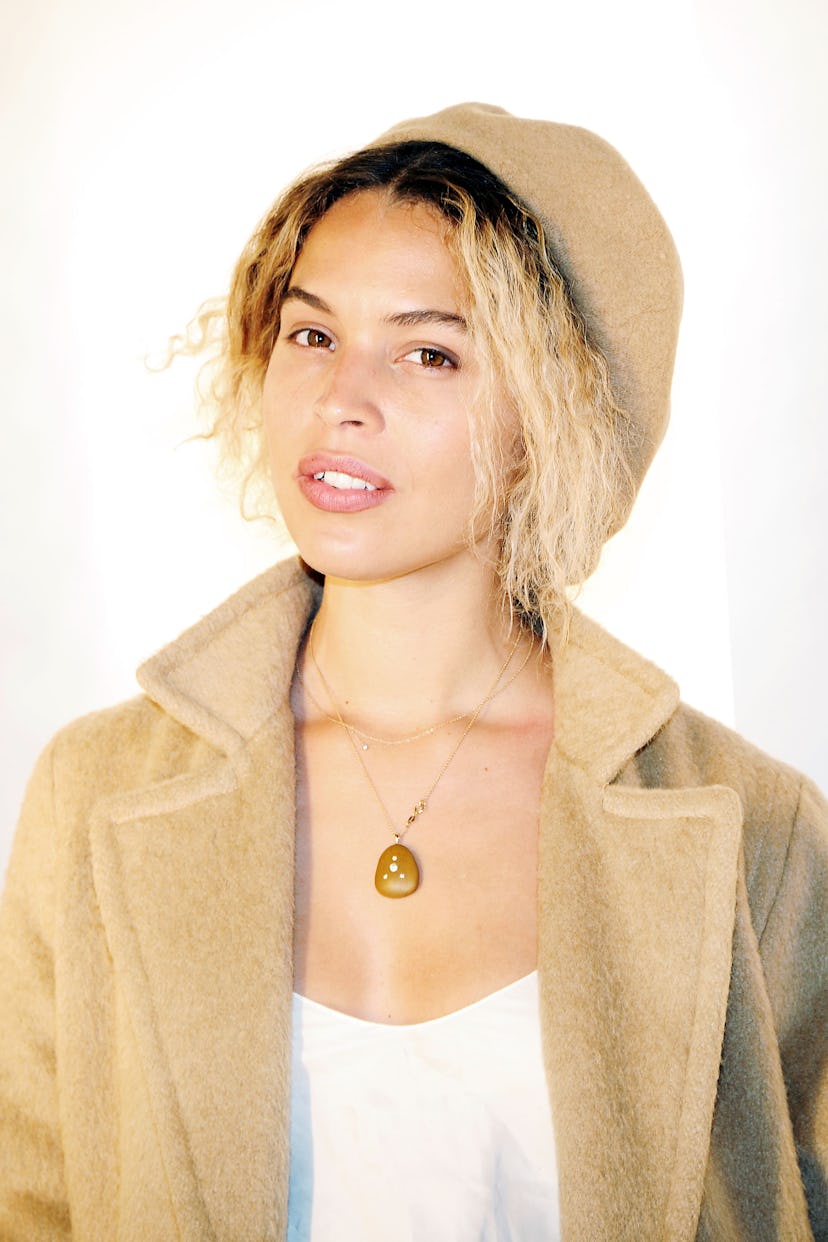Cleo Wade: How I Became Woke to Politics

There is a lot of talk in our culture nowadays about “getting woke.” I think what most people don’t realize about the concept of “being woke” is that you have to wake up from wherever you were previously. In order to “wake up” you have to have been asleep and the journey of waking up hands you an unexpected series of harsh truths and great responsibilities.
I was not always “woke.” I grew up in Louisiana with a white mother and black father and, truthfully, I spent most of my teenage years feeling totally confused about anything political: race, reproductive rights, gay rights, gender equality, foreign policy, guns, etc.
I had no appetite for politics, and also didn’t think I mattered much. So many voices always seemed louder, richer, or more powerful than mine. It was only as I got older and started working on myself spiritually that I began to really understand not only that my voice mattered but that I needed to make sure I was using it as an act of love and service. The more I lived actively pursuing kindness, compassion, intimacy, and vulnerability, while also letting go of negativity, anxiety, jealousy, and judgment, the more in flow I became with caring for others. As I loved myself more, I grew a greater capacity to love my family more, my friends more, my neighbors more and even strangers more. When you become more sensitive to the people around you in this way, you can’t help but become more sensitive to the conditions in which the people around you, near and far, are living. I began to not just understand but really feel that I didn’t want to merely live on the plant, I wanted to be in the world and, as a woman of color in this day and age, there was just no way I could really be in our world and ignore politics.
To be completely honest, my interest in politics is only a side effect of my deep and burning passion to be the best woman I can be. Because the best of me knows that we deserve to live in a world where you can go after what you dream of regardless of your race, your gender, your sexuality, your religion, or your class. The best of me also knows that there is no way we can afford more opportunities for more people if we do not put the work in to uphold the institutions and systems that do work, dismantle the ones that don’t work, and create the new policies necessary to make it possible for all people to not only matter but to thrive.
I feel so lucky for every single opportunity and privilege my family and career has provided me. It is something I never take for granted, which is why I know better than to think that privilege is something I can just sit on. I know I must put my privilege to work. I also know that the easiest way for me to put my privilege to work is to vote. I vote, and I march, and I go door-to-door not just to tell people to go to the polls but also to remind them that they matter. I know what it means to feel like you don’t matter. I know what it means to wonder if things ever really change, but I also know what it means to learn that just because things don’t change overnight does not mean that they don’t change at all. I know what it means to understand that just because something is imperfect does not mean it is hopeless.
When writing this article, I wanted to talk about the work I have been doing raising awareness for all the amazing democratic women on the ballot this year with Emily’s List, an organization that has been making it possible for more women to have a seat at the table since 1986; the conversations I had with women in California about Kamala Harris, who is on track to be the first African American woman in the senate in over 20 years; the churches I went to for Catherine Cortez Masto in Nevada; and the doors I knocked on in Pennsylvania for Katie McGinty, and in North Carolina for Deborah Ross. I was going to talk about the importance of the female vote and give you a list of stats and facts about how women are the biggest voting demographic in the United States, about how important it is to have more women represented at every level of our government in our country — after all, we are 51 percent of the population and make up only 19 percent of congress.
But as I sit here, in my apartment in New York City, after months of vicious and depressing news headlines, I wanted to, instead, take the space on this page that W has been so kind to give me to tell you how much your hope matters. How much your vote matters. And to remind of your power. My favorite poet Alice Walker said it best, “The most common way people give up their power is by thinking they don’t have any.”
See you at the polls!
Katy Perry’s Fundraiser for Kamala Harris
Kamala Harris, Katy Perry, Cleo Wade.
Katy Perry, Jessica Alba and guests.
Emily Ratajkowski and guest.
Mia Moretti, Amber Heard and guest.
Alison Pill and guest.
Guests at the fundraiser for Kamala Harris at Katy Perry’s home in Los Angeles.
Amber Heard and Cleo Wade.
Katy Perry and guests.
Katy Perry and Kamala Harris.
Guests
Kamala Harris
Alison Pill and Sarah Sophie Flicker.
Katy Perry and guests.
Cleo Wade and Katy Perry.
Guests.
Cleo Wade, Alison Pill and guest.
Guests.
Kamala Harris
Guests.
Kamala Harris.
Guests.
Mia Moretti, Emily Ratajkowski, and guest.
Katy Perry and guest.
Cleo Wade and guest.
Guests.